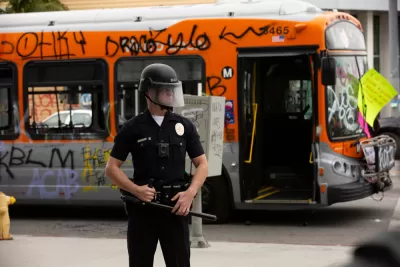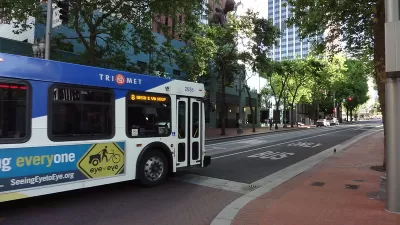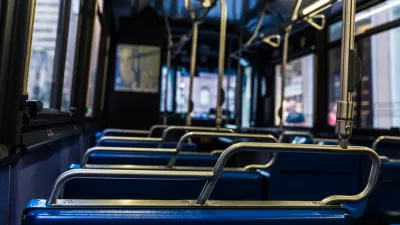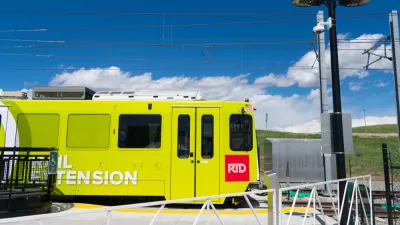The commandeering of buses for police to transport arrested protestors is raising questions about the allegiances of transit agencies in the United States.

Kristin Musulin reports on the wave of responses to the ongoing protests confronting the country's history of police and white violence against Black Americans and people of color.
The article starts with the example of the National Association of City Transportation Officials (NACTO) releasing a statement announcing solidarity with the Black Lives Matter movement, and pledging to address the intersections of racism and transportation.
For example, when we open streets to people but rely on police presence to enforce those spaces, we actively harm many of the people we are trying to support, opening up Black Americans in particular to another venue where they can be stopped by the police, and all too often, arrested, injured, or killed. When we shut transit systems in response to protests, we deny countless people, largely of color or lower incomes, a means of mobility and their right to voice their concerns and seek redress from their government. Transportation’s complicity in these unjust systems must stop.
The portion of the statement discussing the decision to shut down transit systems during protests, like in Los Angeles, segues to other prominent thread of debate regarding transit use during the recent wave of protests and police confrontations in cities, as documented in the article by Musulin. Transit schedules schedules have been altered during the protests in Minneapolis (Metro Transit), Philadelphia (SEPTA), Denver (RTD), Los Angeles (LA Metro), and New York (MTA), according to Musulin.
A separate article by Jarret Walker picks up the question of how transit agencies should adjust schedules during protests, if at all. Walker cites a tweet by Christof Spieler, a boardmember at Houston Metro, for guidance on the subject:
Two lessons for transit agencies in the past several days:
(1) Make a plan to never strand riders
(2) Think about an agency’s relationship with the police— Christof Spieler (@christofspieler) May 31, 2020
Walker is clear, however, that there are no easy answers for transit agencies in these tense moments of mass social upheaval.
The debate about this is urgent and important. My only point is that it isn’t easy or obvious what transit agencies should have done. It was absolutely not OK that people were stranded, and there needed to be a solution for that, but the actual solution isn’t so obvious.
As for advice on how to respond to the ways that transit have been placed into the middle of police responses to the protests, Walker suggests that advocates focus on the interagency emergency planning done in cities and regions.
FULL STORY: Public transit advocates react to George Floyd protests

Planetizen Federal Action Tracker
A weekly monitor of how Trump’s orders and actions are impacting planners and planning in America.

Maui's Vacation Rental Debate Turns Ugly
Verbal attacks, misinformation campaigns and fistfights plague a high-stakes debate to convert thousands of vacation rentals into long-term housing.

San Francisco Suspends Traffic Calming Amidst Record Deaths
Citing “a challenging fiscal landscape,” the city will cease the program on the heels of 42 traffic deaths, including 24 pedestrians.

Amtrak Rolls Out New Orleans to Alabama “Mardi Gras” Train
The new service will operate morning and evening departures between Mobile and New Orleans.

The Subversive Car-Free Guide to Trump's Great American Road Trip
Car-free ways to access Chicagoland’s best tourist attractions.

San Antonio and Austin are Fusing Into one Massive Megaregion
The region spanning the two central Texas cities is growing fast, posing challenges for local infrastructure and water supplies.
Urban Design for Planners 1: Software Tools
This six-course series explores essential urban design concepts using open source software and equips planners with the tools they need to participate fully in the urban design process.
Planning for Universal Design
Learn the tools for implementing Universal Design in planning regulations.
Heyer Gruel & Associates PA
JM Goldson LLC
Custer County Colorado
City of Camden Redevelopment Agency
City of Astoria
Transportation Research & Education Center (TREC) at Portland State University
Jefferson Parish Government
Camden Redevelopment Agency
City of Claremont





























